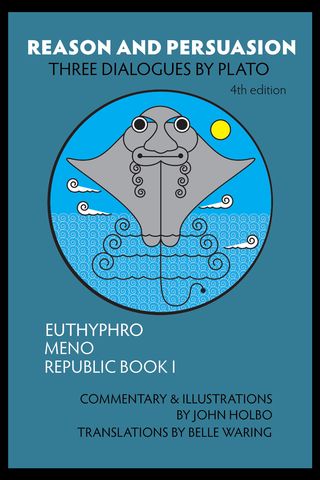by John Holbo on January 2, 2017
Parfit was a great philosopher, and derived a mildly unfair advantage from looking more than a bit like Peter O’Toole. If you just read Reasons and Persons, then looked at a lineup of Ph.D.’s in philosophy, I think you’d probably go: ‘that’s the guy! Gotta be!’ Also, Reasons and Persons is definitely the major work of philosophy most deserving of being rewritten in ‘plan your own adventure’ format. ‘If you think the resulting hivemind will still be you, turn to page 347. If not, turn to page 360.’ That sort of thing.
Let us extend his identity ensure that his psychological life rolls on, albeit in a branching way, by remembering him well. Psychological connectedness and all that.
by John Holbo on January 2, 2017
It’s been a year since Belle and I self-published the latest edition of Reason and Persuasion [amazon], after the original publisher reverted the rights to us. The self-publishing model for our book works ok. We give away the PDF. But you can buy the paper and get a free Kindle version to go with; or just get the Kindle for $1.99. Such a bargain! Or get it from iBooks. All major ebook formats available. We’ve sold a couple hundred copies this year; given away thousands more as free downloads. (I hope you remembered to buy a copy for the person on your list who had everything … except a copy of our book!) I keep hoping it will catch on as a standard textbook in virtue of its obvious economic advantages – and it’s good philosophically, too. But if we just keep bobbing between the 100,000 and 1,000,000 sales ranks on Amazon, I can live with that. But if YOU have a friend looking for a Plato text for some intro course, kindly give them our card.
 [click to continue…]
[click to continue…]
by John Holbo on January 2, 2017
When I teach SF and Philosophy I include a short bit on SF in different media (before proceeding to devote the semester to short stories, for the most part.) So: SF and popular music. Seems like a thing. And a suitable challenge for the CT commentariat. I would be particular appreciative of intelligent periodization. But unclassifiable curiosities are also always welcome.
My post title come from Billy Lee Riley’s 1957 rockabilly hit. Ten years earlier, in 1947, you have a curious, country-gospel number, “When You See Those Flying Saucers”, from the Buchanan Brothers. Ten years later, in 1966, we’ve got the Byrds, “Mr. Spaceman”, the birth of a hippy-trippy sort of space rock – although folk-y “Spaceman” lacks the cosmic, synth-y atmospherics one associates with later progginess. Then, in 1969, we get “Space Oddity”, flipping the script from aliens to alienation, and corresponding to the work Kubrick does with 2001: A Space Odyssey, graduating out of the B-movie flying saucers era. (I just linked to the 1972 version. The song had sort of a slow roll-out, on its way to becoming a classic.) Glam and Ziggy Stardust. Elton John’s “Rocket Man” (1972) is the other early-70’s pop classic in this category. But let’s not forget Harry Nillson’s “Spaceman”, which was a Top-40 hit in 1972. “Bang Bang Shoot ’em up destineee!” And Genesis, “Watcher of the Skies” (1972). I feel Journey’s 1977 “Spaceman” bookends what the Byrds started a decade earlier. (By the by, Journey finally made it into the Rock N Roll Hall of Fame this year. Also, ELO.) After 1977 we are, for a time, in the Styx “Come Sail Away” era, at least when it comes to American SF-themed pop megahits. [click to continue…]
